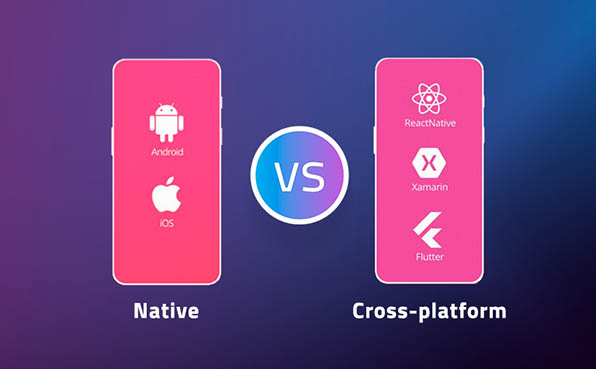
Cross-platform
development is an approach to software development that allows you to create
applications that run on multiple operating systems or platforms using a single
codebase. This approach offers several advantages, including cost savings,
faster development, and wider reach. Here are the key aspects and
considerations in cross-platform development:
- Cross-Platform Frameworks:
- Cross-platform development relies on frameworks and
tools that enable developers to write code once and deploy it to multiple
platforms. Common cross-platform frameworks include:
- React Native: Developed
by Facebook, React Native allows you to build mobile apps for iOS and
Android using JavaScript and React.
- Flutter: Developed
by Google, Flutter uses the Dart programming language and provides a
rich set of widgets for building natively compiled applications.
- Xamarin: Owned by
Microsoft, Xamarin allows you to build mobile apps for iOS, Android, and
Windows using C# and .NET.
- Ionic: Built on
top of web technologies (HTML, CSS, JavaScript), Ionic is used for
developing mobile apps that run on various platforms.
- Apache Cordova
(PhoneGap): Cordova is used to create mobile apps using HTML,
CSS, and JavaScript and package them as native apps for multiple
platforms.
- Unity: Unity is
primarily known for game development, but it can also be used for
cross-platform app development.
- Code Reusability:
- Cross-platform development allows a high degree of
code reuse. You can share a significant portion of your codebase across
different platforms, which can lead to faster development and easier
maintenance.
- Native-Like User Experience:
- Modern cross-platform frameworks provide tools and
components that mimic the look and feel of native apps. This ensures a
good user experience and access to device features.
- Performance:
- Cross-platform app performance has improved
significantly over the years, but native apps may still have a slight
performance advantage in some cases. However, for most apps, the
performance difference is negligible.
- Platform-Specific Code:
- Cross-platform development may require
platform-specific code for certain functionalities that differ between
iOS and Android. These code segments are called "native
modules" and are written in the platform's native language (e.g.,
Swift/Objective-C for iOS, Java/Kotlin for Android).
- Testing and Debugging:
- Cross-platform development frameworks offer testing
and debugging tools specific to their ecosystems. You need to test your
app on different platforms and devices to ensure compatibility.
- Third-Party Plugins and Libraries:
- You can use third-party plugins and libraries to
access device features and expand the functionality of your
cross-platform app. These plugins are often available through the
framework's ecosystem.
- Ecosystem and Community:
- Evaluate the ecosystem and community support for your
chosen cross-platform framework. A robust community can provide
resources, tutorials, and solutions to common issues.
- Deployment:
- Deploying cross-platform apps often requires a
specific process tailored to the chosen framework and platform. Each
platform may have its own set of requirements for submission to app
stores.
- Maintenance and Updates:
- Regularly update your cross-platform app to fix bugs,
add new features, and ensure compatibility with the latest OS versions.
- Limitations:
- Cross-platform development may not be suitable for
all types of apps, especially those that require complex,
platform-specific functionalities or high-performance graphics.
- Cost and Time Savings:
- Cross-platform development can lead to cost savings
as it allows you to target multiple platforms with a single development
effort.
Cross-platform development has become a popular choice for
many businesses and developers looking to maximize their reach and streamline
their development efforts. The choice of framework and approach depends on the
specific requirements and goals of your project, as well as your development
team's skills and expertise.